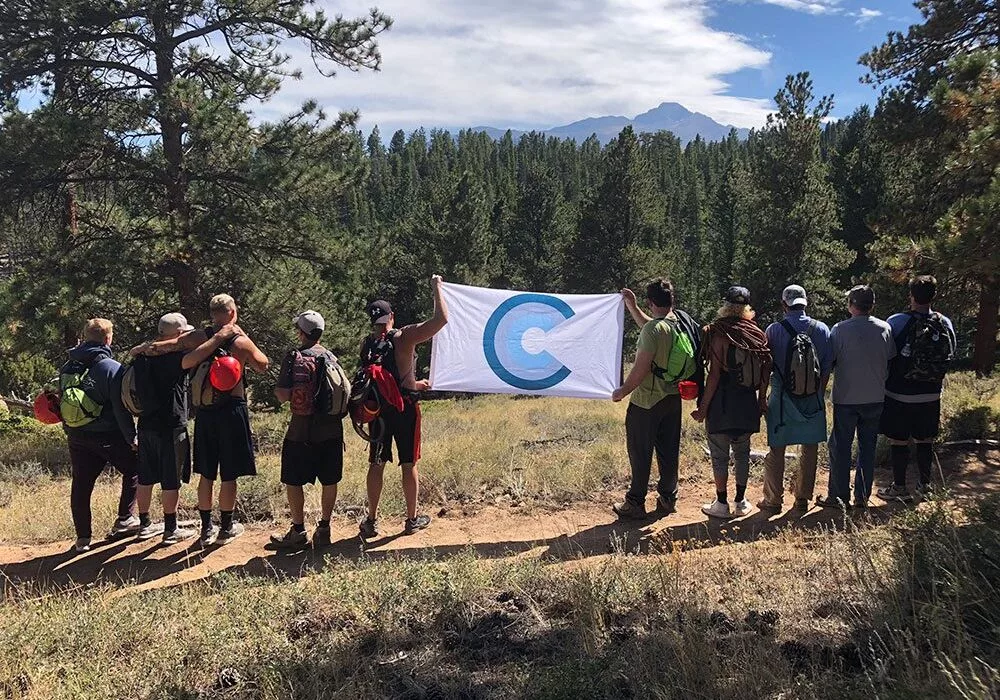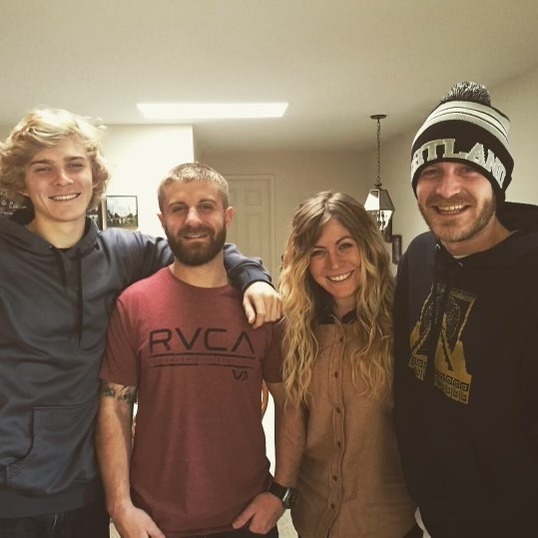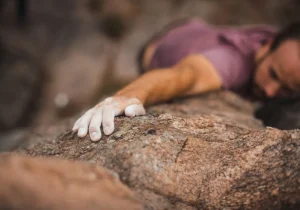Choose a Life Worth Living
Choice House is the Leading Men's Addiction Treatment Center in Boulder, Colorado
Call now to start the journey to freedom, personal growth, and lasting sobriety.
Read our reviews from alumni and their families.
our drug & alcohol rehab in colorado builds lasting foundations
inspired recovery in the Rockies
Our Boulder rehab center location is under an hour from the Rocky Mountain National Park. The healing process within nature sets the tone for a lasting recovery without the distractions of outside influences, allowing you or your loved one to focus on healing and building a foundation of self-discipline. The programs are led by teams of professionals who provide the tools and resources to focus on a life-lasting investment to living a fulfilling life. We have a holistic approach to the recovery journey with programs like long-term sober living, outdoor therapy, and family therapy. There is strong evidence in the addiction field that 30-day residential treatment is usually not a sufficient amount of time to build a foundation strong enough to support long term sobriety. In fact, research shows that the chances for success increase dramatically when an individual spends a minimum of 90 days in a treatment setting.
Choice House is a premier provider of 90-day residential treatment, intensive outpatient treatment services, and long-term structured sober living designed to support those on their road to lasting recovery. Choice House favors a proven, steady approach that never rushes the inpatient rehab process. Rooted in moral and spiritual principles, our programs help struggling men find meaning and purpose in life through honesty, integrity, and the willingness to work hard. Choice House is here to walk that path alongside everyone who joins our program – helping our clients, build community, find a deep personal and spiritual meaning and fill their lives with recovery, camaraderie and principles to build a life with healthy beliefs and behaviors.
If you or a loved one needs support in the journey to sobriety, Choice House can help.
Mental Health Support at Choice House
At Choice House, we understand that mental health challenges often go hand in hand with substance use disorders. Our team is committed to addressing the unique needs of individuals struggling with mental health issues, such as anxiety, depression, PTSD, and trauma. Our integrated approach combines evidence-based therapies and personalized care to help you or your loved one manage mental health while working toward recovery. We believe that true healing involves addressing both the mind and body, and our mental health services ensure that each individual is supported in their journey toward emotional and mental wellness.
A Battle Lost to Addiction
The loss and grief caused by addiction is endless and it touches all of our lives in some way. Millions of souls have lost the battle. Losing the life of a sibling is unbearable. Our CEO, Jordan Hamilton, has lost many people in his life from addiction and mental health. Click to read more.
revealing your path to lasting recovery
embrace a new beginning
Located in beautiful Boulder County, Colorado, Choice House offers three different treatment programs for those seeking inpatient rehab for drug and alcohol addiction with or without co-occurring disorders: 90-day residential treatment, an intensive outpatient program (IOP), and a structured sober living community.
Three programs with a singular mission: to help the men who entrust their recovery process to Choice House develop an unshakable foundation that guides their journey to freedom, personal growth and lasting sobriety.
As a Colorado addiction center and sober living community, Choice House is located in Boulder County, an active, flourishing community of approximately 320,000 that provides ample work, volunteer, education, and internship opportunities for Choice House community residents. Making life even easier is the proximity of the Choice House community to public transit and a range of career and school opportunities – Choice House facilities and homes are less than 40 miles from Denver, Longmont, Loveland, and Fort Collins. Boulder County offers the best of city convenience with the charm of living in the country: The Rocky Mountains are a mere 15 minutes away, providing unlimited year-round outdoor recreational opportunities. Ride or hike the trails, whitewater raft, golf, ski or snowboard, or just spend some unstructured time wandering the Flatirons.
inspired insight
At Choice House, we know the journey toward sobriety is a lifelong pursuit, which is why we’re committed to helping men find durable recovery from drug and alcohol addiction that lasts. One of the most effective ways of moving toward that goal is to keep in contact with those individuals who are either on the same sober living journey or who fully support your path. To aid in this effort, we post informational, educational, and inspired words of wisdom - read & enjoy.
The Benefits of Attending a Family Owned Treatment Program
SUD or Mental Health Issues, Which Came First and Why It May Not Matter
Go Outside to Go Inside: The Benefits of Outdoor Behavioral Healthcare
"Choice House was an essential piece to my current sobriety. I stayed at Choice House for 6 months while enduring through the loss of a family member. Having a safe place and in-house meetings helped me get through the unimaginable while recovering from my own addictions. I felt very comfortable in their upscale, nice living environment. I would recommend Choice House to anyone who needs help. I am forever grateful for my time at Choice House."
- Matthew D.
"As parents of a recovering addict, we can’t print enough positive comments about the Choice House program and the care rendered to our son. David was at a crossroads in his life and needed a positive experience following a 90-day stay at an inpatient rehab center. Choice House provided a caring, nurturing safe haven, as well as a dedicated professional staff capable of helping to guide our son through this difficult transition. We are delighted with the experience David had at Choice House and have recommended this program to other parents."

- Richard and Jennie
“My time at Choice House has been integral to my success as I approach one year of sobriety! The program is owned, operated and supervised by kind and caring people who have all walked the path of recovery. Their experience, strength and hope has been an example to me throughout my own recovery process. The program involves both individual and group therapy, as well as personal and community responsibility. The relationships I have formed while at Choice and that continue today have sustained me through this very difficult time in my life. I would recommend this program without reservation to any man who struggles with addiction and is serious about long-term recovery.”
- John M.
“Being parents of an addict who was on the tough "road to recovery", Choice House gave us peace of mind as the perfect transition to a life with sobriety. Choice House offered a safe home-like setting, top level professional counseling, and structured independence. It was a place where support and guidance was offered while healing and growth occurred. We will be forever grateful for their experienced leadership and support. Choice House was a true blessing for our family.”
- Mary G.
















